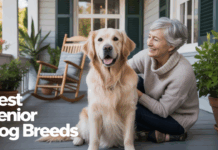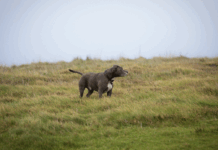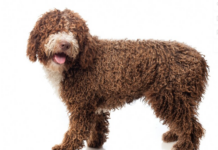Last Updated on March 25, 2023 by Dogs Vets
Top 10 Dog Breeds for Families: A Comprehensive Guide to Choosing Your Perfect Pet
Choosing the perfect dog breed for your family is a crucial decision. A well-suited canine companion can bring joy, laughter, and unconditional love to your household.
To help you make the best choice, we have compiled a list of the top 10 dog breeds for families, factoring in temperament, size, energy levels, and adaptability. Without further ado, let’s dive into the world of family-friendly dog breeds.
1. Labrador Retriever: The Energetic Family Companion

Labrador Retrievers are often considered the quintessential family dog. Known for their friendly nature, gentle temperament, and loyalty, these dogs make fantastic companions for families with children of all ages. They are highly intelligent and trainable, making them great for dog sports and obedience training.
Labradors require regular exercise, so they are perfect for active families who love spending time outdoors.
Key Features:
- Friendly and gentle temperament
- Highly intelligent and trainable
- Active and energetic.
2. Golden Retriever: The Affectionate and Loyal Friend
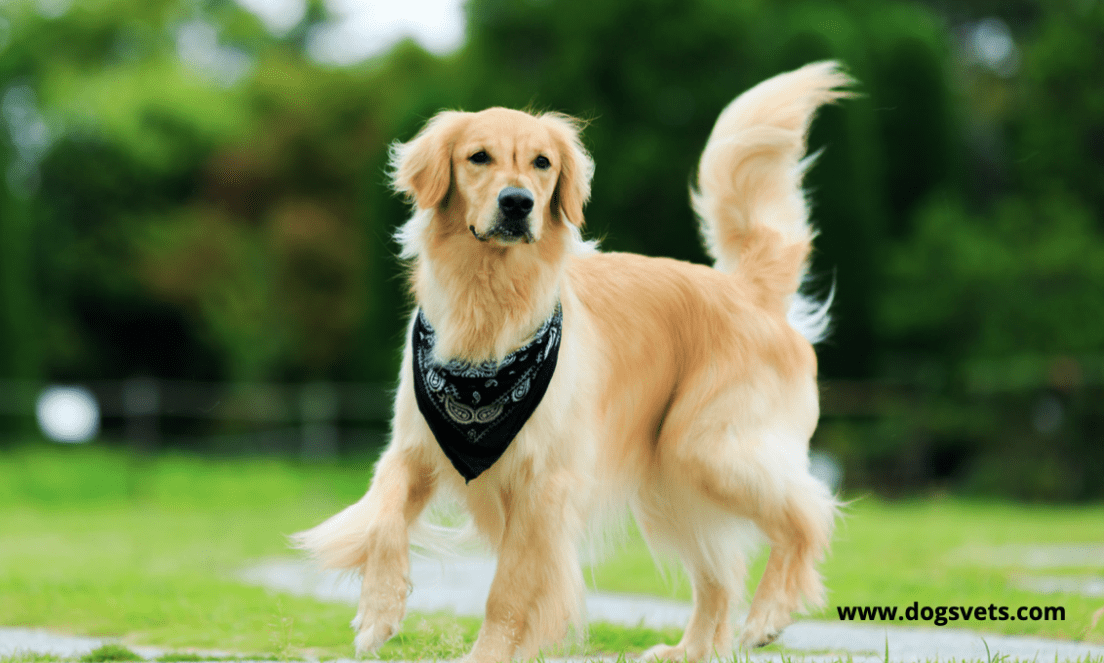
Golden Retrievers are another popular choice for families, thanks to their sweet and loving nature. They are affectionate dogs who thrive on human interaction, making them perfect for households with children.
Goldens are also highly intelligent and easy to train, which means they can quickly learn obedience and even therapy dog work. They require regular grooming to maintain their beautiful coat, as well as daily exercise to keep them healthy and happy.
Key Features:
- Affectionate and loyal
- Intelligent and easy to train
- Requires regular grooming.
3. Beagle: The Friendly and Curious Explorer

Beagles are small to medium-sized dogs with a friendly and curious nature.
They are great with children, and their size makes them suitable for families living in smaller spaces. Beagles have a strong sense of smell and can be quite determined when following a scent, so it’s essential to keep them on a leash during walks.
They are energetic dogs that require daily exercise and mental stimulation.
Key Features:
- Friendly and good with children
- Suitable for smaller living spaces
- Energetic and curious.
4. Poodle: The Intelligent and Versatile Canine
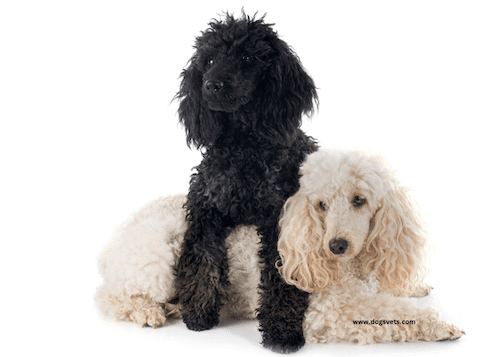
Poodles are known for their intelligence, trainability, and adaptability. They come in three sizes: standard, miniature, and toy, making them suitable for various living situations.
Poodles are hypoallergenic dogs, perfect for families with allergy concerns.
These dogs excel in agility and other dog sports, and they require regular grooming to maintain their curly coats. Poodles are great with children and make excellent family pets.
Key Features:
- Intelligent and trainable
- Hypoallergenic
- Available in three sizes
5. Boxer: The Playful and Protective Guardian
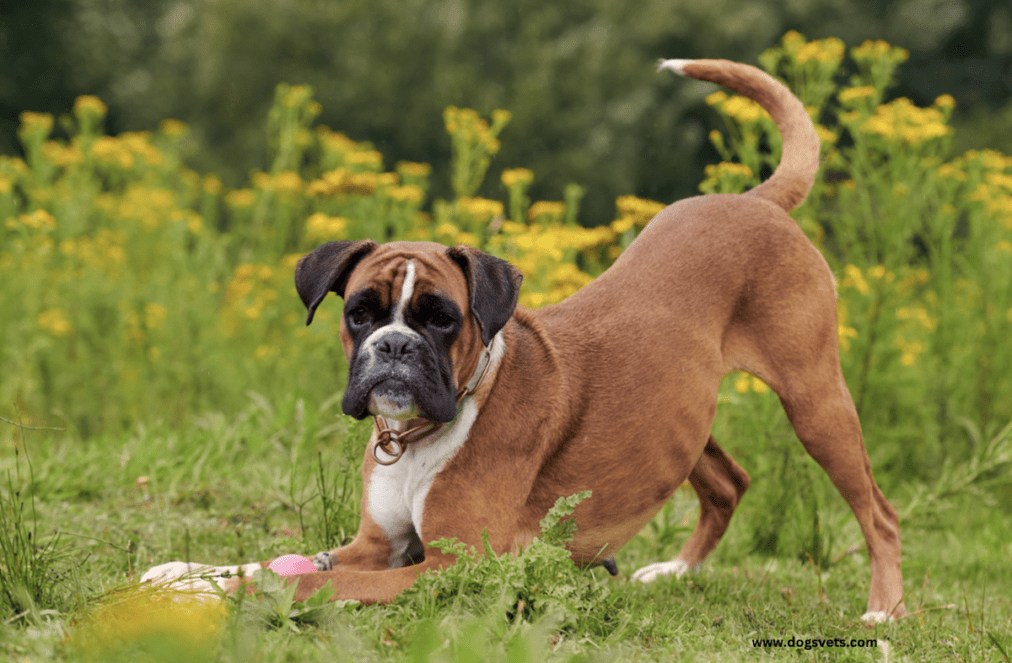
Boxers are energetic, playful dogs that love being around people. They are excellent with children, making them a great addition to any family.
Boxers are loyal and protective, which means they can serve as wonderful guard dogs. They require daily exercise to stay happy and healthy, and they are best suited for families with spacious living areas.
Key Features:
- Energetic and playful
- Loyal and protective
- Good with children
6. Cavalier King Charles Spaniel: The Gentle and Affectionate Lap Dog
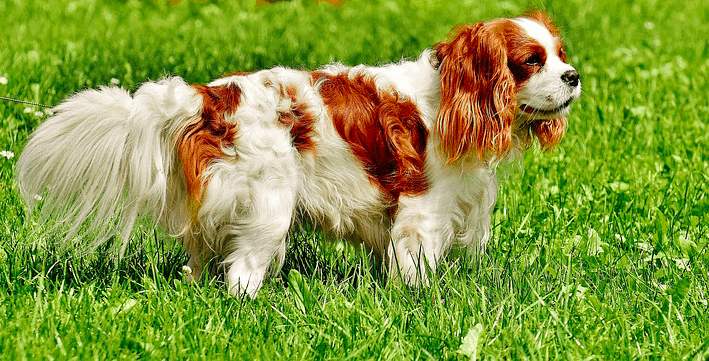
Cavalier King Charles Spaniels are small, loving dogs that are perfect for families looking for a gentle and affectionate companion. They are great with children and adapt well to various living situations, including apartments.
Cavaliers have a low-to-moderate energy level, which means they are happy with regular walks and playtime. These dogs require regular grooming to maintain their beautiful coats.
Key Features:
- Gentle and affectionate
- Great with children
- Adaptable to different living situations.
7. Newfoundland: The Gentle Giant and Nanny Dog
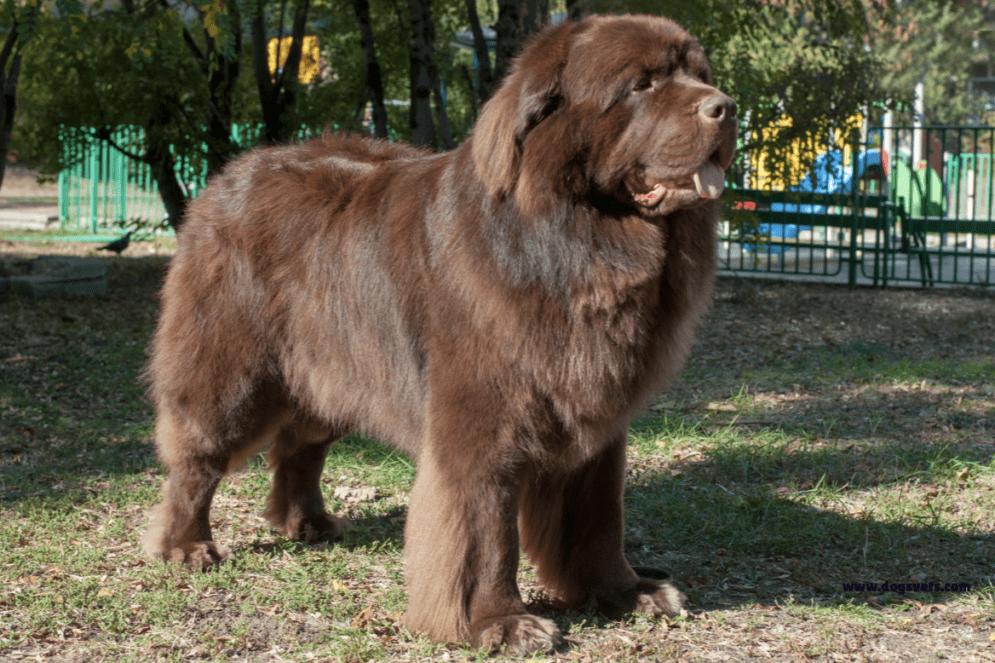
Newfoundlands, also known as “Newfies,” are large, gentle dogs that are famous for their exceptional patience and devotion to their families.
They are especially good with children, earning them the nickname “nanny dogs.” These dogs require plenty of space to move around comfortably, making them best suited for families with large homes and yards.
Newfoundlands need regular grooming and enjoy participating in water activities, thanks to their natural swimming abilities.
Key Features:
- Patient and devoted
- Excellent with children
- Requires plenty of space.
8. Collie: The Intelligent and Elegant Herder
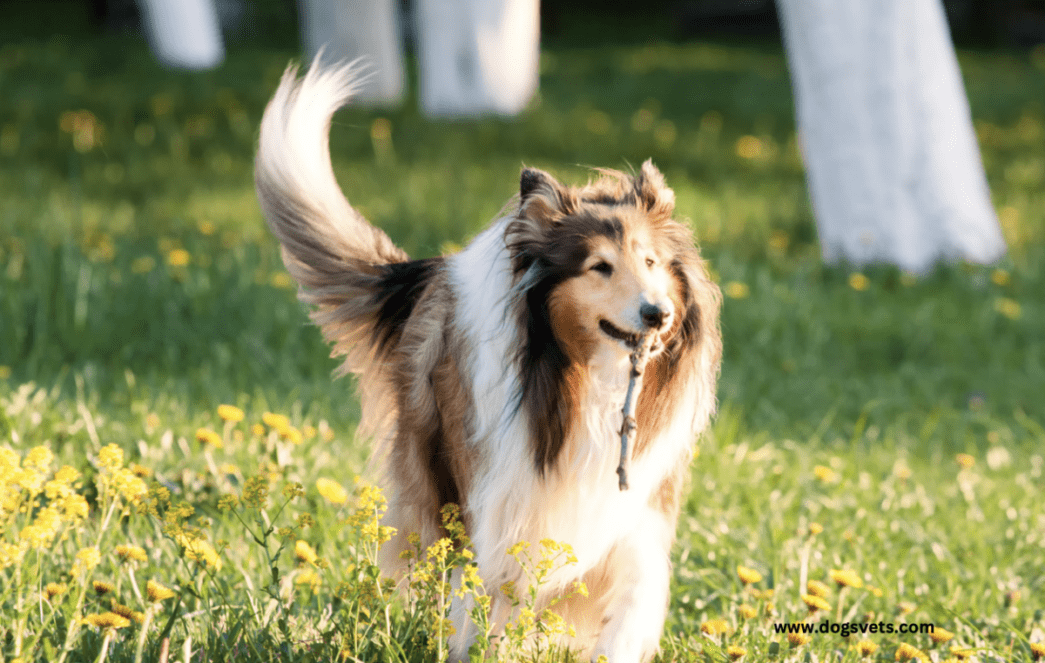
Collies are intelligent, elegant dogs that make excellent family pets. They are known for their herding instincts and are good with children, making them ideal companions for active families.
Collies are easily trainable and excel in obedience and herding events. They require regular grooming to maintain their beautiful double coat and need daily exercise to stay happy and healthy.
Key Features:
- Intelligent and trainable
- Good with children
- Requires regular grooming
9. Bichon Frise: The Cheerful and Hypoallergenic Companion
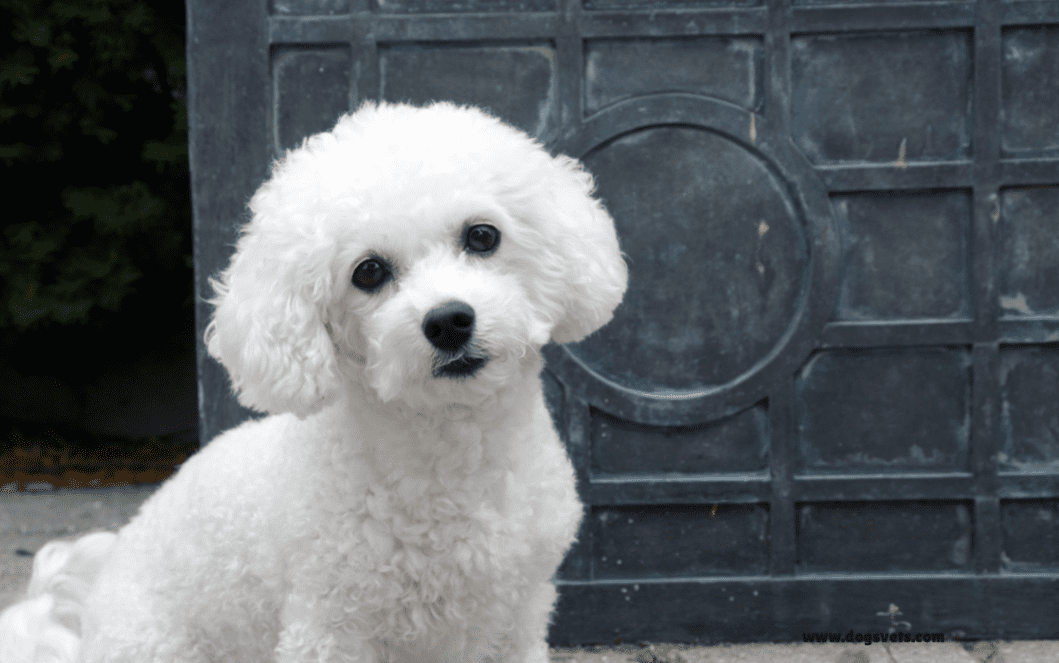
Bichon Frises are small, cheerful dogs that make great companions for families. They are hypoallergenic, making them ideal for households with allergy concerns.
Bichons are friendly and adaptable, getting along well with children and other pets.
These dogs have a moderate energy level, requiring daily walks and playtime to stay happy. Regular grooming is necessary to maintain their fluffy white coat.
Key Features:
- Hypoallergenic
- Friendly and adaptable
- Moderate energy level
10. Vizsla: The Affectionate and Energetic Sporting Dog

Vizslas are medium-sized dogs that are perfect for active families who love spending time outdoors. They are affectionate and intelligent, forming strong bonds with their families.
Vizslas excel in various dog sports, including field trials. They require daily exercise and mental stimulation to stay happy and healthy. These dogs are low-shedding and easy to groom.
Key Features:
- Affectionate and intelligent
- Great for active families
- Low-shedding
Conclusion
Choosing the perfect dog breed for your family is an important decision that should take into account your family’s lifestyle, living situation, and individual preferences.
The top 10 dog breeds we’ve outlined in this guide offer a range of options to suit different families, from energetic and protective breeds like Boxers and Vizslas to gentle and affectionate companions like Cavalier King Charles Spaniels and Bichon Frises.
No matter which breed you ultimately choose, a well-suited dog will enrich your family life with love, loyalty, and joy.
Frequently Asked Questions
How do I choose the right dog breed for my family?**
To choose the right dog breed for your family, consider factors such as your family’s lifestyle, living space, activity level, and any allergies.
Research each breed’s temperament, size, energy level, and grooming needs to find a breed that aligns with your family’s preferences and requirements.
2. How can I introduce a new dog to my children?
When introducing a new dog to your children, it’s crucial to teach your kids how to interact with the dog safely and respectfully.
Supervise all interactions, and encourage gentle, calm behavior from both the children and the dog. It’s important to establish boundaries and teach children not to disturb the dog while it’s eating, sleeping, or playing with a toy.
3. How much exercise does a family dog need?
The amount of exercise a family dog needs depends on its breed, size, age, and overall health. In general, most dogs require at least 30 minutes to an hour of exercise per day, including walks, playtime, and mental stimulation.
Active breeds like Labrador Retrievers and Vizslas may require more exercise, while smaller, lower-energy breeds like Bichon Frises and Cavalier King Charles Spaniels may need less.
4. What should I consider when adopting a dog from a shelter?
When adopting a dog from a shelter, it’s essential to consider the dog’s age, temperament, size, and health. Ask shelter staff about the dog’s background, behavior, and any known medical issues.
Make sure to spend time with the dog in a quiet environment to see how it interacts with you and your family members.
5. Are mixed-breed dogs good family pets?
Mixed-breed dogs can make excellent family pets, as they often inherit the best traits from their parent breeds. However, it’s important to research the specific breeds in the dog’s lineage to better understand its potential temperament, size, and grooming needs.
6. How can I socialize my dog to be good with children and other pets?
To socialize your dog with children and other pets, expose your dog to a variety of people, animals, and environments from a young age. Use positive reinforcement techniques to reward calm and friendly behavior.
Additionally, enroll your dog in obedience classes or puppy socialization groups to help them learn appropriate social behavior.
7. Can I train my dog to be a therapy or service dog?
Many dog breeds, especially those with friendly, intelligent, and trainable temperaments, can be trained to be therapy or service dogs.
It’s important to start training and socializing your dog from a young age and consider enrolling in specialized training programs to help your dog develop the necessary skills for therapy or service work.
Keep in mind that not all dogs are suited for this type of work, and it’s essential to be patient and consistent in your training efforts.
Fact Check
We hope you enjoyed reading this article. What are your thoughts on the topic?
“At [Dogsvets.com], our goal is to bring you the most accurate and up-to-date information on all things pet-related.
If you have any additional insights or would like to advertise with us, don’t hesitate to get in touch.
If you notice any errors or discrepancies in our content, please let us know so we can correct them.
We welcome your feedback and encourage you to share this article with others.”






